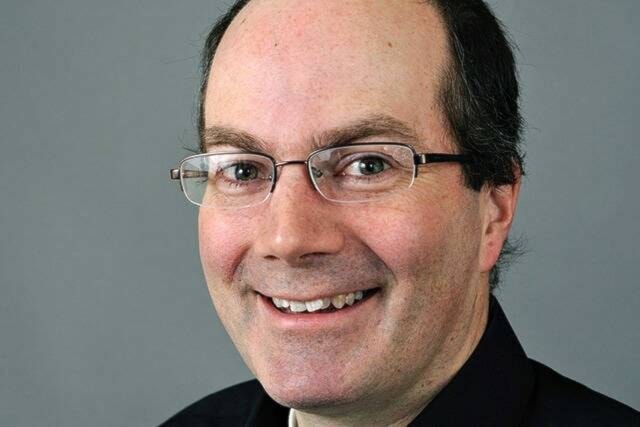Health
Yukon Establishes New Health Authority Amid Ongoing Challenges

The Yukon government, in collaboration with the First Nations Chiefs Committee on Health, has announced the establishment of a new health authority named Shäw Kwä’ą. This authority will serve as an administrative and coordinating layer between the Yukon health minister and frontline health delivery organizations. The aim is to create a health care system that is culturally safe, community-focused, and patient-centered for all Yukoners.
Despite this ambitious vision, questions remain about the immediate impact of Shäw Kwä’ą on residents, particularly those in underserved areas such as Pelly Crossing and Whistle Bend, where access to family doctors is limited. Notably, according to the Canadian Institute for Health Information, approximately 22.5 percent of Yukoners aged 18 and over lack a regular health care provider. If this statistic holds for all age groups, that translates to over 10,000 Yukoners without consistent access to medical care.
The press release announcing Shäw Kwä’ą did not mention any additional funding, raising concerns among veteran health care administrators about the feasibility of implementing substantial changes within existing budget constraints. Former Premier Sandy Silver‘s Financial Advisory Panel previously warned that institutional reorganizations often result in minimal improvements in efficiency, likening it to “rearranging the deck chairs.”
New Board Composition and Responsibilities
The newly appointed board of Shäw Kwä’ą comprises individuals with diverse backgrounds and expertise, but notably lacks representation from local family practice doctors or nursing union representatives. The board is chaired by Stephen Mills, who has extensive experience in Yukon governance and is a member of the Vuntut Gwitchin First Nation. Other members include Alisa Alexander, a Fairbanks doctor and director of the University of Alaska’s Center for One Health Research; Jill Charlie, director of health and wellness for the Kwanlin Dün First Nation; and Georgina Macdonald, who has over 35 years of health care experience in Canada.
This board represents a departure from previous governance structures, as it emphasizes perspectives from First Nations citizens and professionals with experience in both Canadian and U.S. health systems. This shift could provide valuable insights into effective health care delivery, but the board must also navigate the complexities of Yukon’s health care landscape.
The board faces urgent tasks: securing a new CEO who can assemble a competent team, reviewing past studies and proposals, and implementing meaningful reforms without getting bogged down in administrative complexities. The Yukon government has allocated $9.4 million for reorganization expenses in the 2024-25 budget, but the board will need to ensure they can secure additional funding to effectively serve the increased population demand for family doctor services.
Challenges Ahead for Yukon’s Health Care System
For Yukoners to see tangible improvements, the new board must act decisively and effectively. They will be judged on their ability to address pressing issues such as the recruitment of family doctors, staffing community nursing stations, and reducing waiting times for essential procedures. The absence of strong financial oversight and expertise, particularly from former chief financial officers, could hinder their ability to navigate these challenges.
Moreover, the board must establish its authority to pursue a potentially contentious agenda for reform. If interest groups can bypass the board and appeal directly to the Yukon government or the First Nations Chiefs Committee, the implementation of necessary changes may become complicated.
The community’s hope rests on whether Shäw Kwä’ą can transform the current health care landscape. Many Yukoners are looking for shorter waiting lists, fully staffed nursing stations, and more reliable access to family doctors. If the new authority fails to deliver, the reorganization could serve as a cautionary tale in public administration—a case study of what happens when expectations exceed resources and capabilities.
-

 Education4 months ago
Education4 months agoBrandon University’s Failed $5 Million Project Sparks Oversight Review
-

 Science5 months ago
Science5 months agoMicrosoft Confirms U.S. Law Overrules Canadian Data Sovereignty
-

 Lifestyle5 months ago
Lifestyle5 months agoWinnipeg Celebrates Culinary Creativity During Le Burger Week 2025
-

 Science5 months ago
Science5 months agoTech Innovator Amandipp Singh Transforms Hiring for Disabled
-

 Health5 months ago
Health5 months agoMontreal’s Groupe Marcelle Leads Canadian Cosmetic Industry Growth
-

 Technology5 months ago
Technology5 months agoDragon Ball: Sparking! Zero Launching on Switch and Switch 2 This November
-

 Education5 months ago
Education5 months agoNew SĆIȺNEW̱ SṮEȽIṮḴEȽ Elementary Opens in Langford for 2025/2026 Year
-

 Education5 months ago
Education5 months agoRed River College Launches New Programs to Address Industry Needs
-

 Business4 months ago
Business4 months agoRocket Lab Reports Strong Q2 2025 Revenue Growth and Future Plans
-

 Technology5 months ago
Technology5 months agoGoogle Pixel 10 Pro Fold Specs Unveiled Ahead of Launch
-

 Top Stories1 month ago
Top Stories1 month agoCanadiens Eye Elias Pettersson: What It Would Cost to Acquire Him
-

 Technology3 months ago
Technology3 months agoDiscord Faces Serious Security Breach Affecting Millions
-

 Education5 months ago
Education5 months agoAlberta Teachers’ Strike: Potential Impacts on Students and Families
-

 Business1 month ago
Business1 month agoEngineAI Unveils T800 Humanoid Robot, Setting New Industry Standards
-

 Business5 months ago
Business5 months agoBNA Brewing to Open New Bowling Alley in Downtown Penticton
-

 Science5 months ago
Science5 months agoChina’s Wukong Spacesuit Sets New Standard for AI in Space
-

 Lifestyle3 months ago
Lifestyle3 months agoCanadian Author Secures Funding to Write Book Without Financial Strain
-

 Business5 months ago
Business5 months agoNew Estimates Reveal ChatGPT-5 Energy Use Could Soar
-

 Business3 months ago
Business3 months agoHydro-Québec Espionage Trial Exposes Internal Oversight Failures
-

 Business5 months ago
Business5 months agoDawson City Residents Rally Around Buy Canadian Movement
-

 Technology5 months ago
Technology5 months agoFuture Entertainment Launches DDoD with Gameplay Trailer Showcase
-

 Top Stories4 months ago
Top Stories4 months agoBlue Jays Shift José Berríos to Bullpen Ahead of Playoffs
-

 Technology5 months ago
Technology5 months agoWorld of Warcraft Players Buzz Over 19-Quest Bee Challenge
-

 Top Stories3 months ago
Top Stories3 months agoPatrik Laine Struggles to Make Impact for Canadiens Early Season










